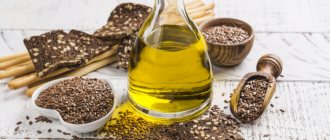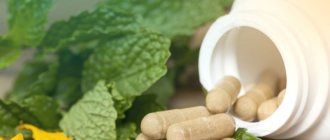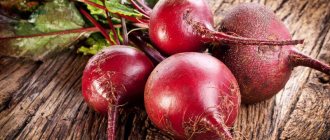Gastritis is an extensive inflammation of the gastric mucosa, accompanied by a general disorder of the digestive system. In addition to acute pain in the gastrointestinal tract, people with gastritis experience bloating and problems with bowel movements. Constipation with gastritis is a common problem that can be solved with the help of a laxative.
Causes of constipation with gastritis
Constipation refers to the absence of the urge to defecate for more than two days or incomplete bowel movements due to the slow movement of stool. After defecation, repeated urges often occur. Sometimes defecation is accompanied by severe pain. Constipation occurs during the acute stage of gastritis. Often, defecation becomes difficult as a reflex. Similar symptoms occur with stomach ulcers, kidney disorders, and cholecystitis.
A distinctive feature of this type of constipation is that it intensifies when the symptoms of gastritis worsen. Often patients cannot go to the toilet normally for several days, so they have to use an enema. As soon as the exacerbation of gastritis stops, intestinal function returns to normal on its own. Therefore, constipation is secondary to stomach disease. To get rid of the symptom, treatment of the underlying disorder is required.
To avoid constipation with chronic gastritis, you need to eat right and regularly apply preventive measures. A disorder of the gastric mucosa most often occurs with a poor diet. Gastritis and constipation occur due to a lack of fiber contained in fruits and vegetables. If there is an insufficient amount of the beneficial substance in the body, the process of fecal formation becomes difficult.
We list the foods that make defecation difficult and slow down bowel function:
- rice;
- bakery products;
- chocolate;
- confectionery and hot drinks;
- food containing starch
- certain types of fruits and berries;
- fat meat;
- products containing cocoa.
Patients with gastritis are most often diagnosed with irritable bowel syndrome . The problem is inflammation of the stomach walls and disruption of bowel movements.
https://youtu.be/Bt1fHnpyKOo
Causes
The causes of constipation directly depend on diet.
Reflex. People suffering from intestinal diseases (chronic gastritis, colitis, etc.) most often suffer from constipation due to gastritis. In addition to constipation, they experience additional inconveniences: abdominal pain, stomach cramps. These symptoms usually bother a person during an exacerbation of the disease. Many people think that constipation due to gastritis is best treated with laxatives and use them in large quantities. Because of this, the microflora of the gastrointestinal tract is further disrupted, and irritable bowel syndrome appears. Sometimes it can accompany inflammation of the stomach or be a spontaneous disease. Another reason for constipation may be disruption of the digestive system in cases of operations on the digestive organs themselves. Controlled constipation, which also occurs at the reflex level, is manifested by: an anxious nervous or excited state of a person, which is why the illness occurs; a side effect of certain medications - sleeping pills, antidepressants; a sedentary lifestyle and lack of movement, which leads to a general weakening of the physical tone of the body.- Food causes of constipation. People create problems for themselves due to poor nutrition. The causes of constipation directly depend on the neglect of eating fresh fruits and vegetables, fiber, which is found in all cereals, legumes, and nuts. The intestines must work and digest coarse food fibers without causing failures. It is necessary to review the menu and dilute easily digestible carbohydrate foods (wheat bread, sweets), fats (meat, fish), proteins (butter, cottage cheese). This food does not force the colon to work, thereby causing constipation.
Dry food - sandwiches, crackers, shawarma, pizza and other fast food dishes - have a strong impact on a person. You need to eat well, eating soups, borscht, and porridge without fail. You need to eat slowly, chewing your food thoroughly, without swallowing pieces whole. At first glance, these seem to be insignificant reasons, but they greatly affect the body and need to be taken seriously so that no complications arise.
What to do if constipation occurs with gastritis?
Constipation due to gastritis is treated with medications or traditional medicine that have a laxative effect.
List of drugs:
- Stool softeners (Vaseline oil, glycerin suppositories, Duphalac).
- Stabilizing intestinal motility (“Dulcolax”, “Guttalax”, thick senna extract).
- Increasing the volume of feces (magnesium sulfate, lactulose, microenemas).
If surgery was performed on the organs of the digestive system before treatment, it is necessary to consult with a surgeon to find out the possible consequences of taking medications. The effectiveness of laxatives depends on the dosage determined for each person individually. If there is no bowel movement for several days, then laxatives are powerless.
In this case, an enema is done with warm water and the addition of two tablespoons of sunflower oil to avoid damage to the rectum. The volume of water in the enema ranges from 0.5 to 1 liter.
Gastritis with high acidity
Constipation with gastritis with high acidity occurs much less frequently.
Constipation with this type of gastritis occurs much less frequently than with normal gastritis, but there are many factors that can trigger it. Stress, alcohol consumption, excessive consumption or, conversely, refusal to eat, smoking, and poor diet are factors that provoke constipation. Regular abuse of the above, which causes constipation, can lead to stomach ulcers. People with gastritis with high acidity usually do not pay attention to constipation; they think this is a normal phenomenon with such a disease. Over the years, constipation will become more frequent and the painful condition will only worsen.
What tests are prescribed?
Self-medication for gastritis is strictly prohibited. The diagnosis of gastrointestinal disorders and treatment methods should be determined by the attending physician.
What does diagnostics include:
- stool analysis for blood content - to identify the affected area in the gastrointestinal tract;
- blood is taken to determine the general condition;
- gastroendoscopy allows you to find damage to the stomach, identify the death of the mucous membrane, the number of normally functioning glands;
- the presence of the microorganism Helicobacter pylori in the stomach is determined by performing a breath test.
If the gastroenterologist deems it necessary, the patient will be prescribed a laxative to cleanse the intestines.
Medicines for constipation
Let's look at the main categories of laxatives:
- Medicine that softens stool artificially belongs to the class of the mildest. The preparations contain plant extracts, the natural properties of which stimulate the functioning of the intestinal walls.
- Osmotic. Medicines pass through the stomach and begin to work in the intestines. The peculiarity of these laxatives is the removal of fluid from the body - you need to remember these properties and drink more water when using them. The principle of action of osmotic drugs allows you to cope with prolonged constipation.
- Prebiotics are carbohydrates that enter the body along with food. The substances contained in the laxative pass through the stomach and begin to become active in the intestines. Such medications are used with minimal harm to the body.
- Microclysters are used when there is a need for urgent emptying, when hardened feces cause pain.
Gastroenterologists recommend using osmotic laxatives for a long time, and not just when unpleasant symptoms occur. However, the duration of the course should not be too long. Each laxative is addictive, the intestines refuse to independently perform their natural functions and stop providing normal stool.
Traditional methods
In the absence of effective laxatives, you can use traditional medicine to treat constipation. Such recipes cannot be used instead of medications - they are used in conjunction with drugs for complex treatment.
Common traditional medicines:
- herbal decoctions;
- honey;
- flaxseed oil or seeds;
- carrot juice.
Herbal decoctions calm the nervous system and relax the intestines. Plantain and blueberry leaves are poured with boiling water and brewed for 6 hours. Drink the tincture 3 times a day before meals for two weeks.
A spoonful of honey is stirred in a glass of boiled water and drunk every morning for a month.
Flax seeds can be used in two ways:
- Eat 50 g twice a day, drink plenty of water.
- Add grated seeds to the liquid and consume 5 times a day.
This solution softens the intestines and does not cause discomfort.
Carrot juice reduces the level of acidity in the stomach and helps break down its contents. To achieve the desired result, you need to drink a glass of juice every morning before breakfast for two weeks.
How to get rid of constipation
The decision on the method of relieving constipation due to gastritis is made by a gastroenterologist. The problem is solved comprehensively. These include medications that help speed up peristalsis, enhance intestinal motility and soften stool, and a special diet containing foods that help relieve constipation.
Drug treatment
Looking for the best treatment for constipation and gastritis? The doctor will tell you what to do, who will analyze the patient’s health condition and help eliminate the cause of the disorder.
To get rid of characteristic symptoms, gastroenterologists recommend taking the most gentle, but quite effective drugs. This:
Important! It is worth remembering that any laxatives have not only indications for use, but also contraindications. Before starting treatment, you should consult your doctor.
Nutritional Features
The question of whether there can be constipation with gastritis and how to get rid of the problem worries many. And without adjusting your diet, it is almost impossible to get rid of the disorder .
What foods should your diet consist of to avoid problems with intestinal motility and how to change your usual eating pattern? The recommendations are simple and accessible.
- It is necessary to exclude from the daily menu foods that cause constipation (fast food, rice, fried meat, some fruits and berries).
- Salty and smoked foods that retain fluid and do not contribute to the normalization of intestinal function are prohibited.
- If you have gastritis, you need to eat often, but in small portions. The optimal number of meals is 5-6 times a day.
- Compliance with the drinking regime is an essential part of the treatment regimen for constipation with gastritis. An adult who does not exhaust himself with physical labor needs to drink at least 1.5-2 liters of clean water per day. Black tea, juices, coffee and carbonated drinks do not count towards healthy fluids.
The following will help significantly ease the process of defecation:
- fermented milk products (it is important to buy the freshest kefir and fermented baked milk, since an expired product can aggravate the problem, adding constipation to bloating and other disorders);
- boiled or steamed vegetables (carrots, beets, potatoes);
- porridges that cleanse from toxins (buckwheat, barley, oatmeal);
- bran, which not only helps improve intestinal function, but also fills the diet with the most beneficial vitamins and microelements;
- nuts in small quantities (for example, 4 walnut halves per day is the optimal dose for both the intestines and brain function);
- healthy fresh and dried fruits include plums, peaches, apricots, apples, grapes;
- fresh celery, aromatic dill and parsley will make salads tasty and bowel movements regular.
Advice! Drinks made from dried or fresh fruits and berries also have excellent laxative properties. It is important not to consume your favorite fruit drinks and compotes cold. The best effect is achieved by liquid at room temperature.
Constipation most often makes life difficult for people who lead a sedentary lifestyle. By adding morning exercises or going to the pool several times a week to your schedule, you can normalize the functioning of the entire gastrointestinal tract.
Treatment Options
A qualified gastroenterologist selects an individual diet for dietary nutrition. If problems arise with bowel movements, treatment will be aimed not only at eliminating the underlying disease, but also at relieving unpleasant symptoms such as constipation. The list of pharmacological agents prescribed by the doctor will include a laxative.
Medicines are prescribed that accelerate peristalsis, soften stool, and increase its volume. A worthy alternative can always be found for expensive drugs. For example, candles can be replaced with Vaseline oil. Treatment methods depend on how advanced the disease is and how long it lasts.
What is an enema
An enema is a medical procedure that involves administering water or other liquids or medicinal solutions through the anus into the rectum (using standard enema tips) or directly into the colon (using long intestinal tubes or deep enema tips).
Enema is a medical procedure consisting of the introduction of water or other liquids or solutions of medicinal substances through the anus into the rectum.
A standard enema consists of a container with a volume of 1 to 2 liters, a rubber hose, a tip and a clamp. You can make an enema yourself from scrap materials, but it is best to use a pharmacy product. For an enema, you can use water with various additives.
Water for enema should be boiled and cooled to body temperature. Too cold water can cause intestinal spasms and difficulty in introducing it inside, as well as cooling the body of a fasting person. Too warm water is also not recommended due to increased absorption in the large intestine.
An enema is best done in a calm environment. The bathroom is well suited for these purposes. The container with liquid is suspended at a height of 1-1.5 above your torso. The tip of the enema is lubricated with vegetable oil and inserted into the rectum at a distance of 5-7 cm. However, in practice, an enema without a tip is very often used, introducing a rubber hose lubricated with vegetable oil into the rectum. After the enema, it is advisable to rest for some time.
It should be noted that there are several contraindications when using enemas. People with peritonitis, appendicitis, colitis, inflammatory bowel disease, or abdominal trauma should not use these treatments.
Diet for constipation
A diet for constipation is aimed at reducing inflammation in the stomach. This effect is successfully achieved by selecting healthy foods. To get rid of problems, it is recommended to eat:
- Rye bran.
- Fruits and boiled vegetables.
- Homemade yoghurts.
- Kefir without fat.
- Leaven.
Gastroenterologists recommend fresh berry compotes or herbal decoctions. When drinking liquid, be sure to monitor its temperature. Hot or cold drinks should be completely excluded from the diet.
5 drops of castor oil help with prolonged constipation. This substance quickly softens stool during gastritis. All food should be chewed thoroughly to speed up the digestion process.
Gastritis occurs due to an unhealthy diet, lack of the required amount of fruits and vegetables in the diet. The disease develops regardless of age category. Poorly digested stomach contents enter the intestines, causing disorders, problems with bowel movements, and constipation. For some people, going to the toilet turns into real torture; when defecating, pain is felt, and the intestines are not completely defecated.
Each body has individual characteristics; the number of trips to the toilet may differ for everyone. Some foods for gastritis have a binding effect and help weaken the intestines, stool hardens, and defecation becomes difficult.
What foods should you exclude?
You can improve intestinal motility by excluding from your diet some foods that have a fixing effect. Among them the following can be noted:
- saturated broths, fried or boiled meat (red);
- rice on water;
- berries and fruits with pronounced astringent properties (persimmon, quince, black currant, chokeberry);
- vegetable dishes (mashed potatoes, fried eggplant);
- fast food (chips, hamburgers, baked goods).
Among the drinks, the following have strengthening properties: black tea, grape juice, red wine, cocktails that contain mint. In some cases, it is worth giving up strong natural coffee without added milk, which can also cause constipation.











